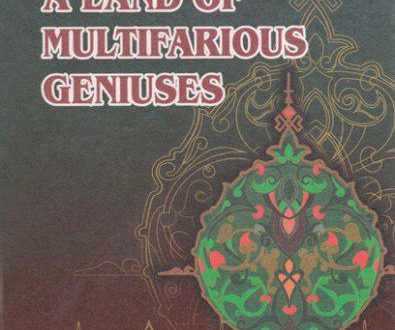Abdurazzaq Samarqandi was born on November 7 (on the 12th day of the month Sha’ban) 816/1413 in Herat. His full name was Kamaliddin Abdurazzaq, and his father’s name was Jalaliddin Is’haq Samarqandi. The reason for why though Abdurazzaq was bom in Herat but was famous with his penname “Samarqandi” is in the fact that his father Jalaliddin Is’haq was originally from Samarkand and for some period of time the future historian Abdurazzaq also lived in Samarkand.
Abdurazzaq Samarqandi received the primary education in Herat, and later, with the help of his father and brothers Abdulghaffar, Abdul-qahhar and Abdulvahhab, he deeply studied such subjects as tafsir, hadith, law, history, linguistics and literature and grew up as a mature specialist in these branches of science. His father Jalaliddin Is’haq occupied respectable positions as a judge and imam at the royal court of the Temurid princes, and his brothers were estimated representatives of the learned people of their time. An estimated poet and the founder of the Uzbek literary language His Eminency Alisher Navai in the following lines characterized the deep knowledge received by Abdurazzaq Samarqandi: “Mavlana Abdurazzaq … was a man of good behaviour and high intelligence, he had a good command of different branches of science and had pleasant characteristic features”.
Judging from the position his father occupied in the court of the Temurid princes, Abdurazzaq Samarqandi was closely familiar with the court affairs and therefore, after his father’s death in 1437/38, at the age of 24 he was appointed to a responsible position at the court of the Temurid princes.
After that up to the age of 50, he was engaged in the court affairs under the rule of the Temurid princes as Shahrukh Mirza and other princes as Mirza Abulqasim Babur (1452-1457), Mirza Sultan Abu Sa’id (1451-1469), etc. who occupied the throne of Herat. As was stated by his contemporary Abdulvase an-Nizami, “At Shahrukh Mirza’s court Abdurazzaq Samarqandi occupied the highest positions and was responsible for the most important tasks of state affairs. In some courts he had high promotions and a special privileged position in the society”.
Though Abdurazzaq Samarqandi does not mention the privileged positions he held in court affairs, we can easily understand from the description of events of that time that he was responsible for the di plomatic relations of the state with other countries and played an important role in these relations. During the first half of the 15th century, the Temurid government established friendly relations with the governments of Rum (Small Asia), Egypt, India, China and others. This fact can be proved by the evidences mentioned in the historical sources and from his information presented as an account of his visits at the embassy of the government of the Temurid princes. For instance, in the memoirs on his visit to India titled as “A Story of visit to India and the wonders of this land”, he writes he was the head of the embassy sent by Shahrukh in 1442 to South India. The embassy left Herat on 13 January 1442 and led their way through South Eastern Iran, Arabia, Khurmuz port, Maskat and Arabian Sea. On 7 October 1442, they reached Calcutta and stayed there for 5 months. They stayed in Vijayanagar up to the end of 1443 and then returned home. On the way back home, they took their way through the sea and Khurmuz port. At the end of 1444 (in December), they reached Herat. This story was included into his book “Matla’i sa’dayn”. This book also contains some information about his visits to Ghilan and other cities as an ambassador. For the last time, he was on the eve of his visit to Egypt as an ambassador but the ruler Shahrukh Mirza died and his visit was cancelled.
 Imom Buxoriy xalqaro ilmiy-tadqiqot markazi bukhari.uz
Imom Buxoriy xalqaro ilmiy-tadqiqot markazi bukhari.uz














